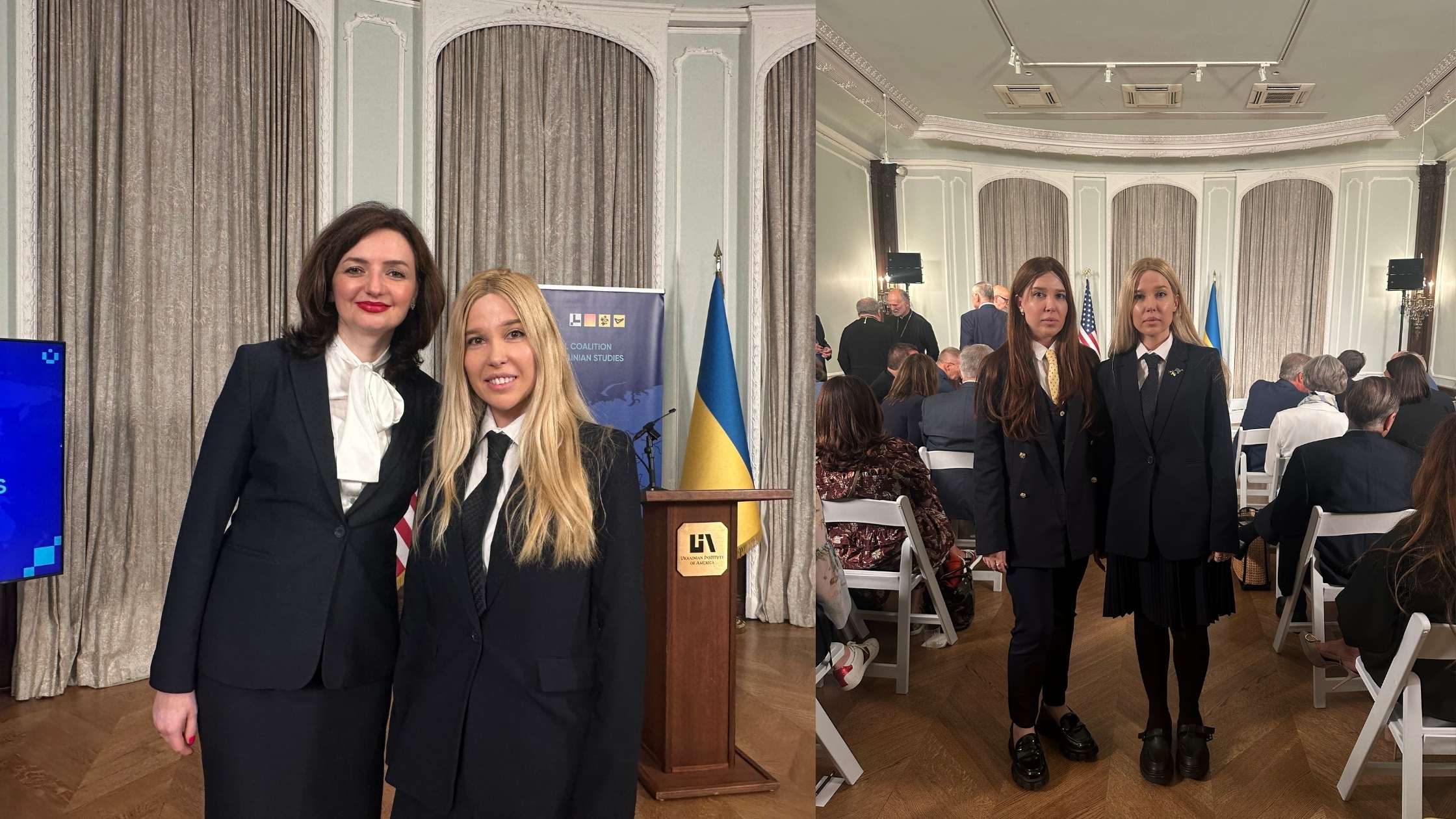September 24, 2025
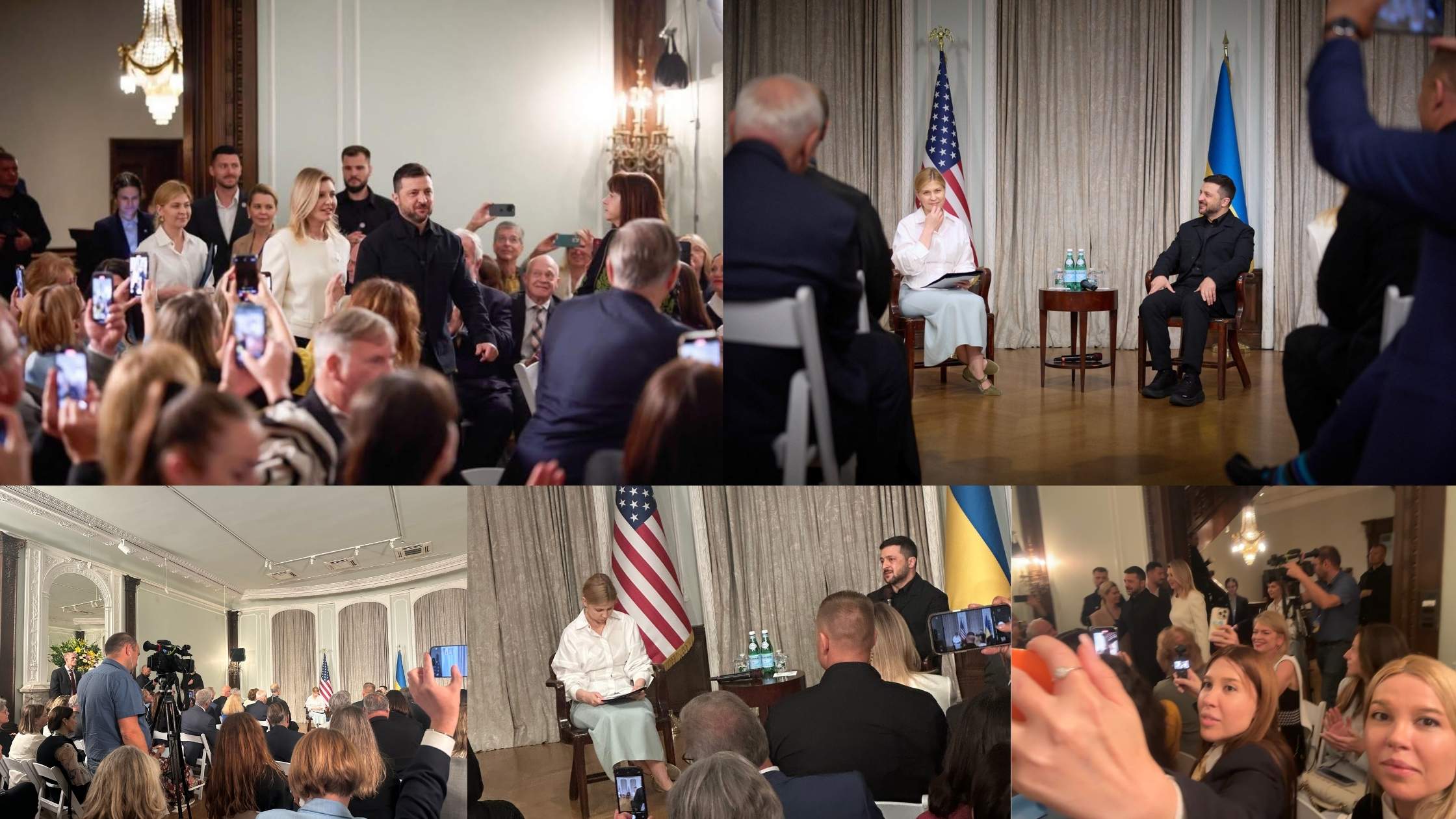
The meeting, held during UN General Assembly week and moderated by Ukraine’s newly appointed Ambassador to the United States Olga Stefanishyna, marked a rare direct dialogue between Crimean Tatar diaspora leaders and Ukraine’s top officials. The encounter came on the heels of the Fifth Summit of the International Crimean Platform, which drew more than 60 delegations, including 19 heads of state and government, ministers and high representatives from 34 countries across all continents, and seven international organizations.
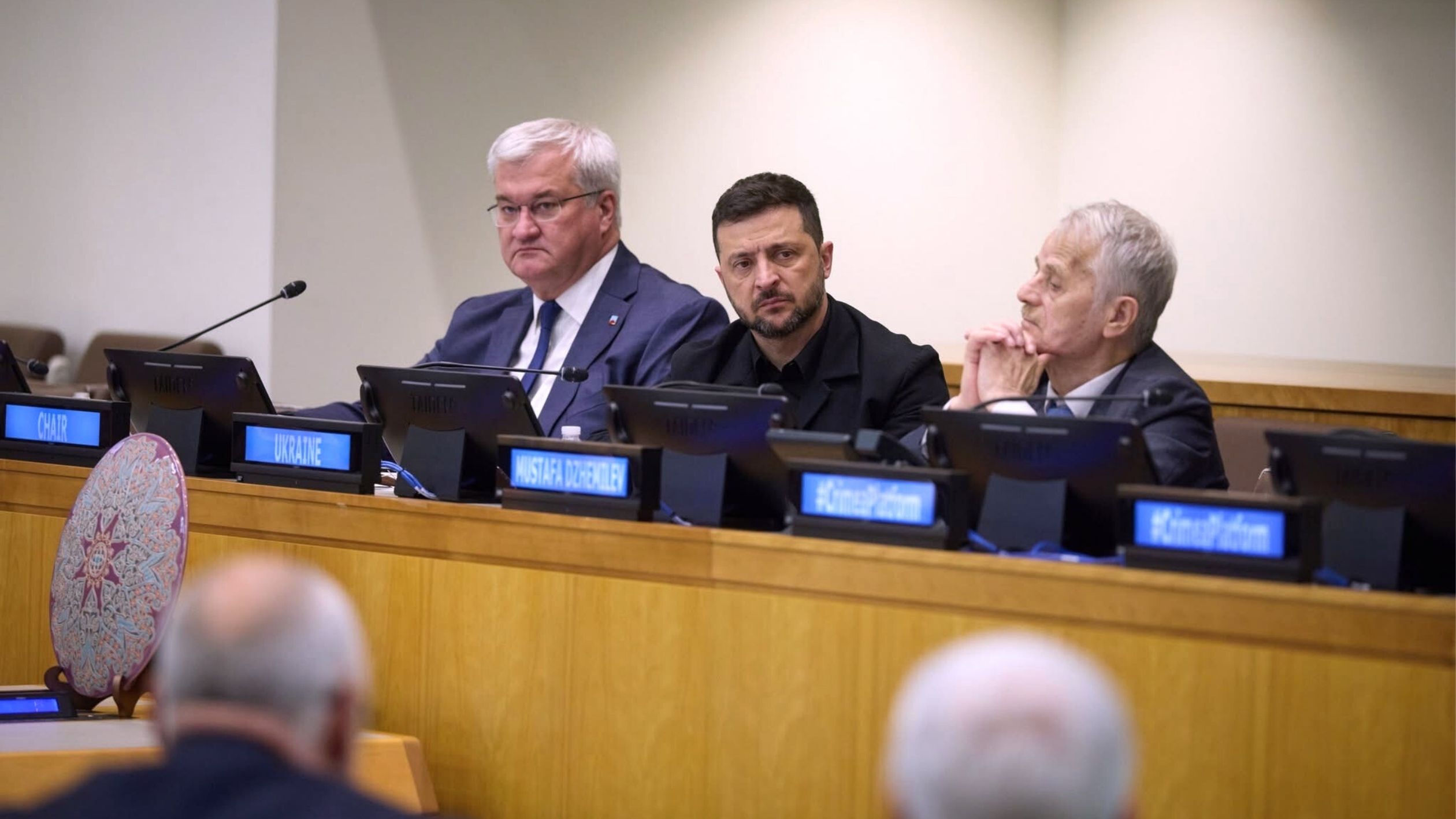
President Zelensky answered questions that representatives of the Ukrainian and Crimean Tatar diaspora had written on cards in advance. CTF USA took this opportunity to appeal to the President to ensure a more systematic presence of the Crimean Tatar voice in the United States.
“Too little is heard about the autochthonous nation of the peninsula, and it is strategically important for Ukraine that the Crimean Tatar voice be amplified,” the CTF USA quoted American legislators as saying, based on research and congressional delegations conducted jointly by Ukrainian and Crimean Tatar advocates throughout 2024 and 2025.
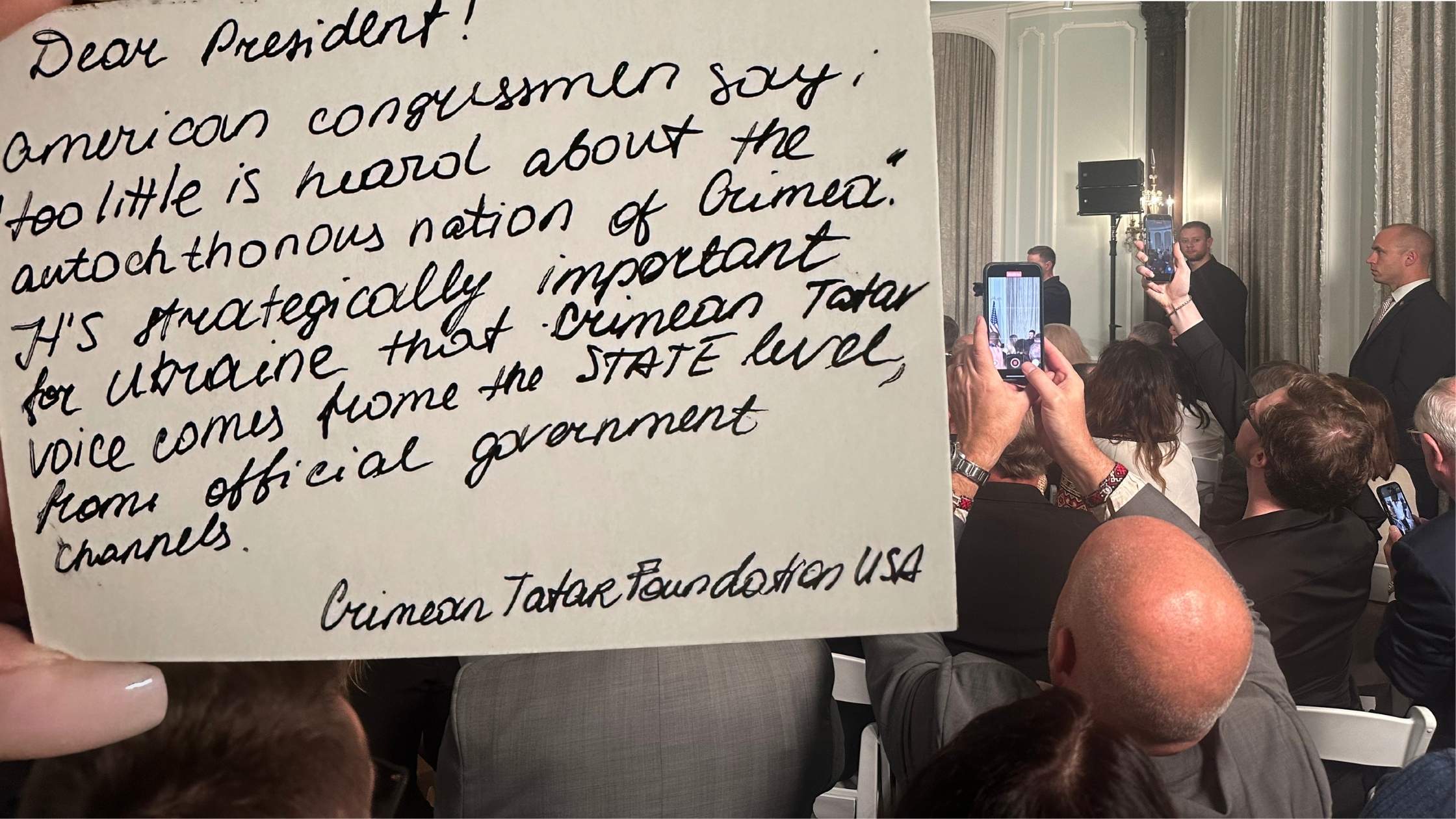
“Condemn the autochthonous nation to extinction”
At the Fifth Summit of the International Crimean Platform, which is taking place this year in New York on the sidelines of the UN General Assembly, Mustafa Dzhemilev, the 81-year-old People’s Deputy of Ukraine and leader of the Crimean Tatar nation, delivered a statement that can be characterized as a stark warning to the international community.
Dzhemilev warned that the failure to liberate Crimea would lead to the world condemning the autochthonous nation of the peninsula to extinction with its own hands. The international community’s position regarding the occupation of Crimea has shown the world not as passive indifference, but as an active choice with existential consequences for the Crimean Tatar nation.
The statistics Dzhemilev cited paint a grim picture of life under Russian occupation. Crimean Tatars face political and religious repression at a rate 52 times higher than the population of Russia itself, he said. Legal experts and human rights advocates describe these systematic persecutions as meeting the threshold for dolus specialis — the “special intent” required under international law to constitute genocide through ethnic cleansing.
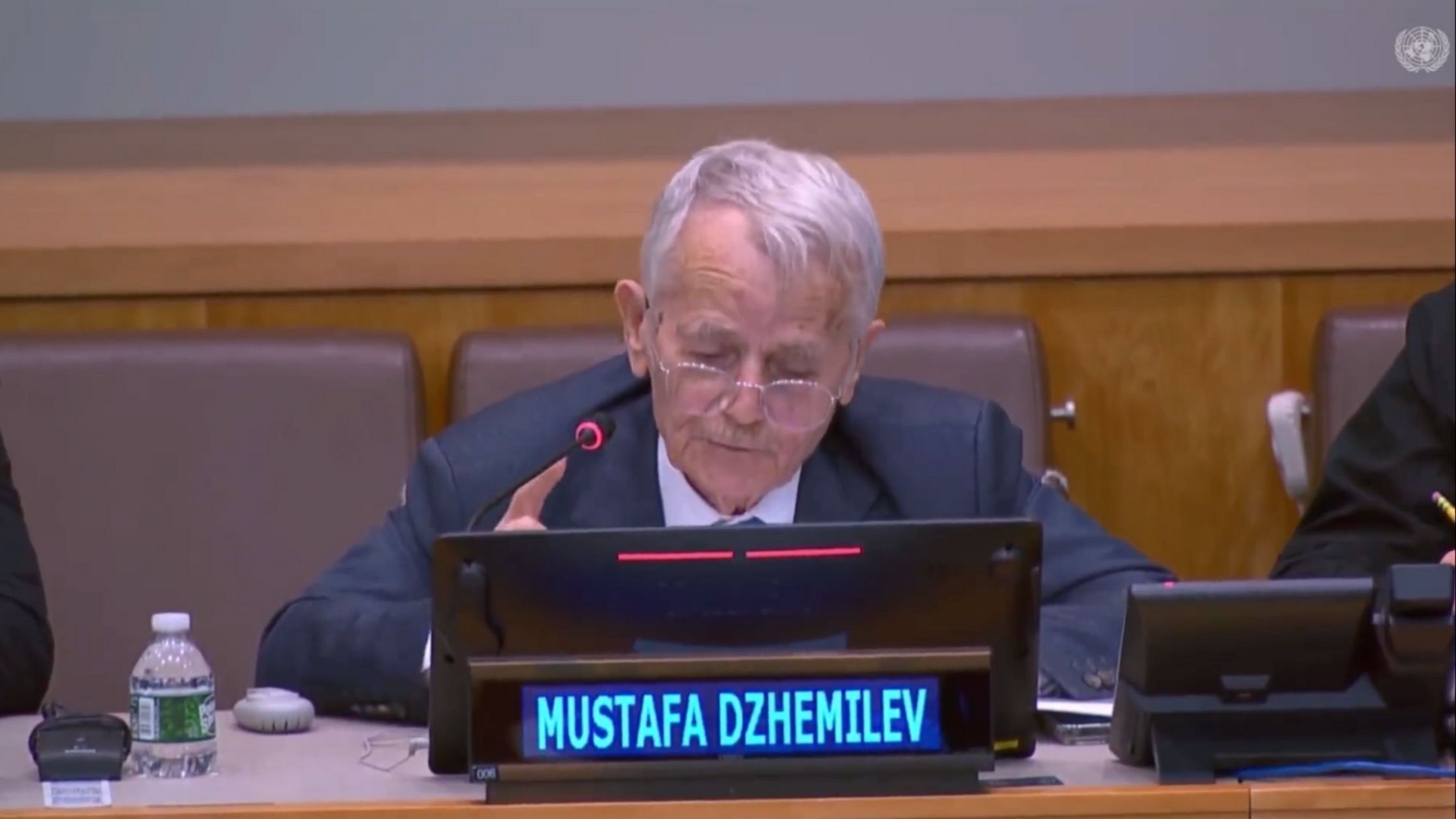
Historical fact: Crimean Tatars, an autochthonous nation of Crimea and indigenous people of Ukraine living on the Crimean Peninsula, have a long history of colonization under three historical Russian regimes. The Açlik Qirim genocide, which starved 76,000 people to death in Crimea in 1921-23, and Stalin's mass forced expulsion of 462,100 Crimean Tatars from their homeland in Crimea in 1944, during which 46.2% of them perished, remain among the little-known genocides of the 20th century. After decades of resistance, many returned to Crimea after the collapse of the Soviet Union but faced renewed persecution following Russia's illegal annexation of the peninsula in 2014.
Strategic importance for Ukraine
The U.S. Crimean Tatar Foundation’s emphasis on amplifying Crimean Tatar voices reflects a sophisticated understanding of American foreign policy dynamics. By framing Crimea not merely as a territorial dispute but as a test case for autochthonous rights and genocide prevention, advocates hope to appeal to constituencies beyond traditional Ukraine support networks.
“Her Excellency a new Ambassador of Ukraine in U.S. Stefanishyna gives us confidence that Ukraine’s cause, including Crimean Tatar rights, will have strong representation in Washington,” the president of the CTF USA stated.
Olga Stefanishyna, who previously served as Ukraine’s Deputy Prime Minister for European and Euro-Atlantic Integration and Minister of Justice, brings extensive experience in legal affairs and international advocacy to her new diplomatic post. Her moderation of Wednesday’s meeting signals what observers say may be a more coordinated approach to highlighting indigenous rights issues in Ukraine’s diplomatic strategy.
The Fifth Summit of the International Crimean Platform culminated in the adoption of the New York Declaration, which reaffirmed states’ commitment to the goals and principles enshrined in the UN Charter, particularly respect for the sovereignty and territorial integrity of states, renunciation of the use of force, and peaceful settlement of international disputes. The document recognizes the consistent and principled position of the UN General Assembly in defending these norms of international law and confirms the illegality of any territorial acquisitions resulting from aggression, as well as non-recognition of attempts at annexation and temporary occupation of Ukrainian territory.
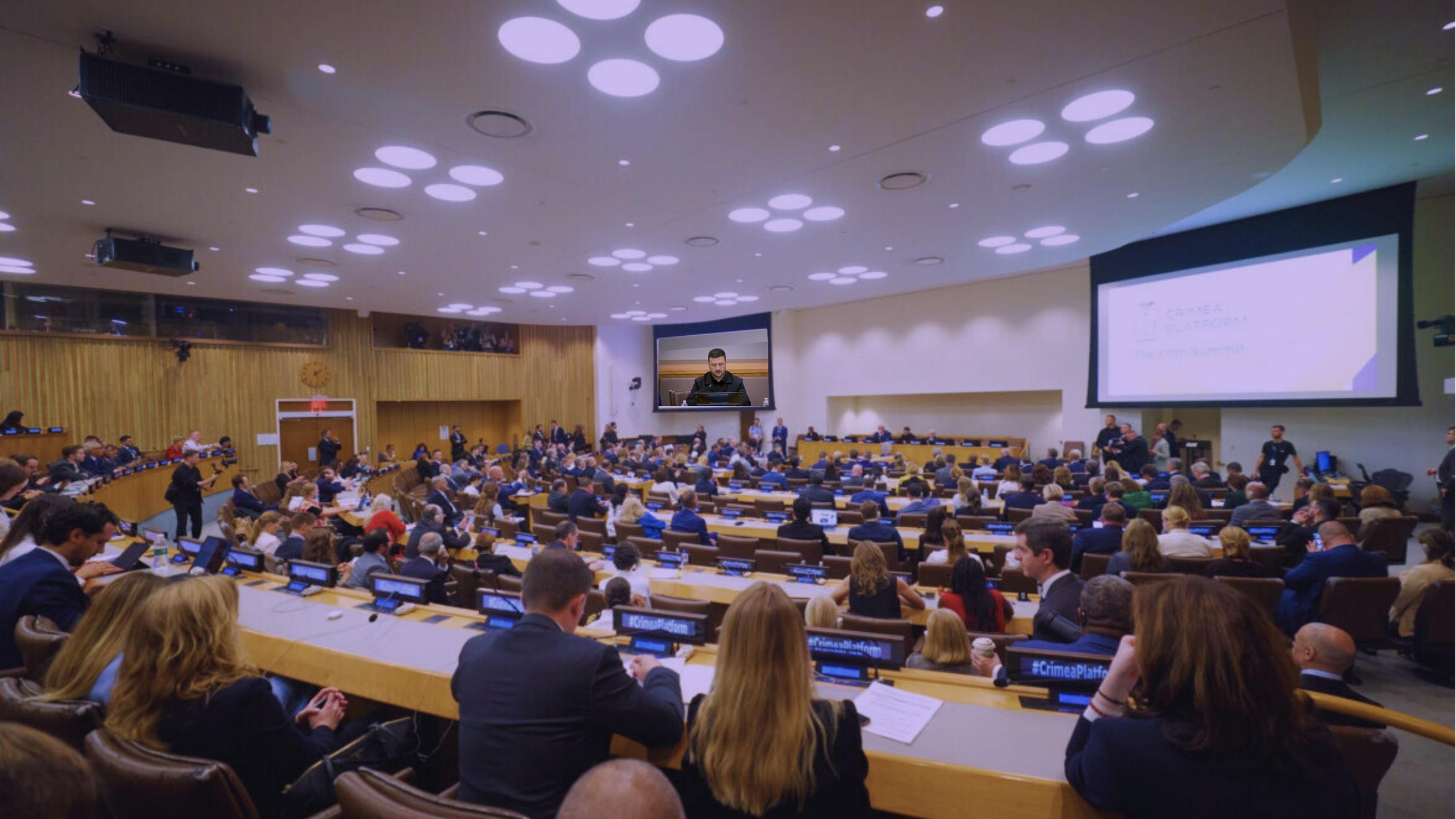
Ukrainian Foreign Minister Andriy Sybiha emphasized the declaration’s symbolic importance. “The most important thing this summit gives to Ukrainians in Crimea, to Crimean Tatars, to all who do not lose faith in the restoration of justice, is a powerful signal of hope,” Sybiha said. “The world has not forgotten, Ukraine has not forgotten, and we will never abandon either you or our goal to restore justice.”
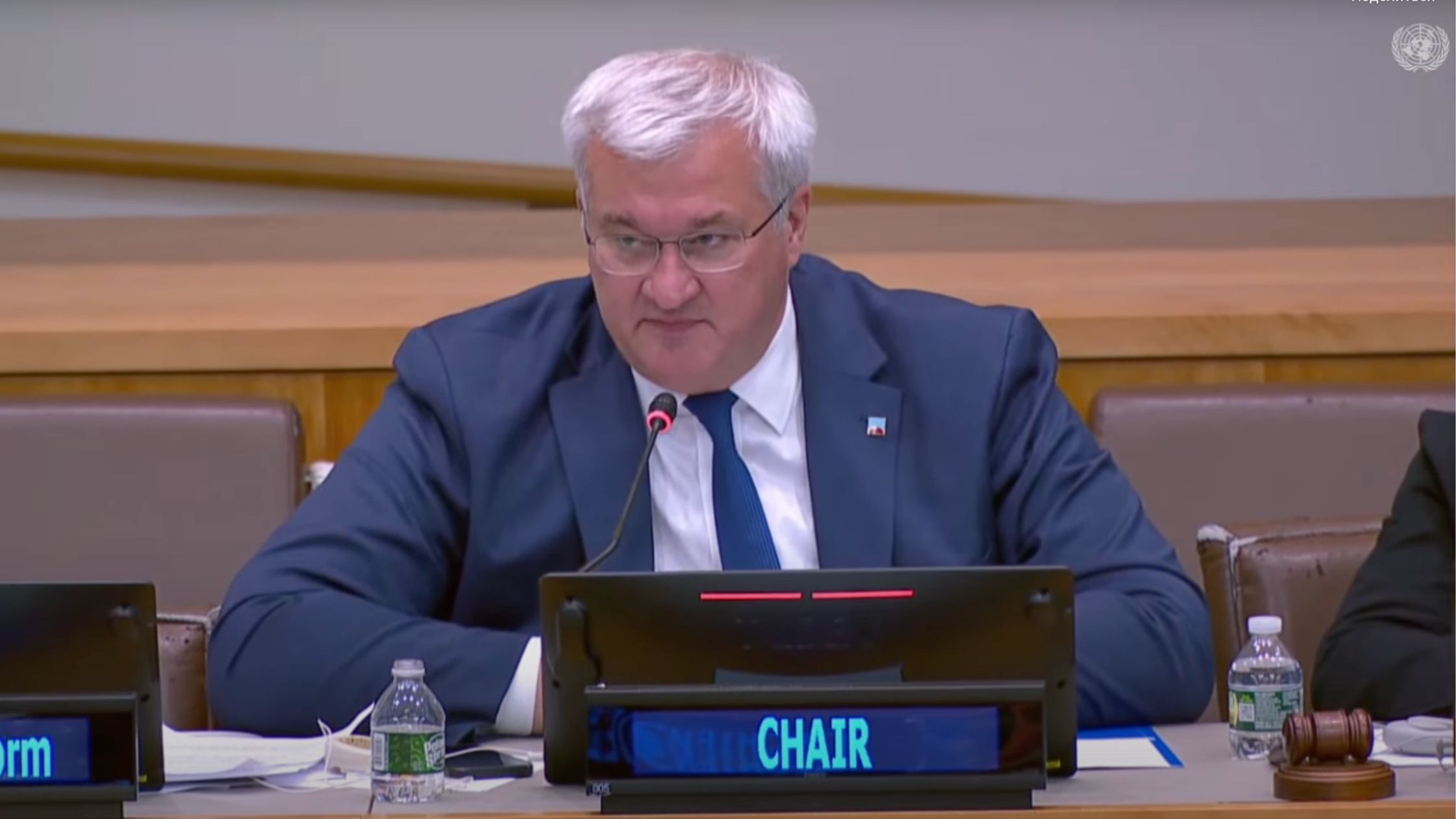
For the Crimean Tatar Foundation USA, which received its invitation to the presidential meeting from Oresta Starak, First Secretary at the Embassy of Ukraine, these words carry particular weight.
“These words of support have special significance for the Crimean Tatar nation under Russian occupation and Crimean Tatars who watched around the world,” vice president of CTF USA said in a statement following the meeting.
